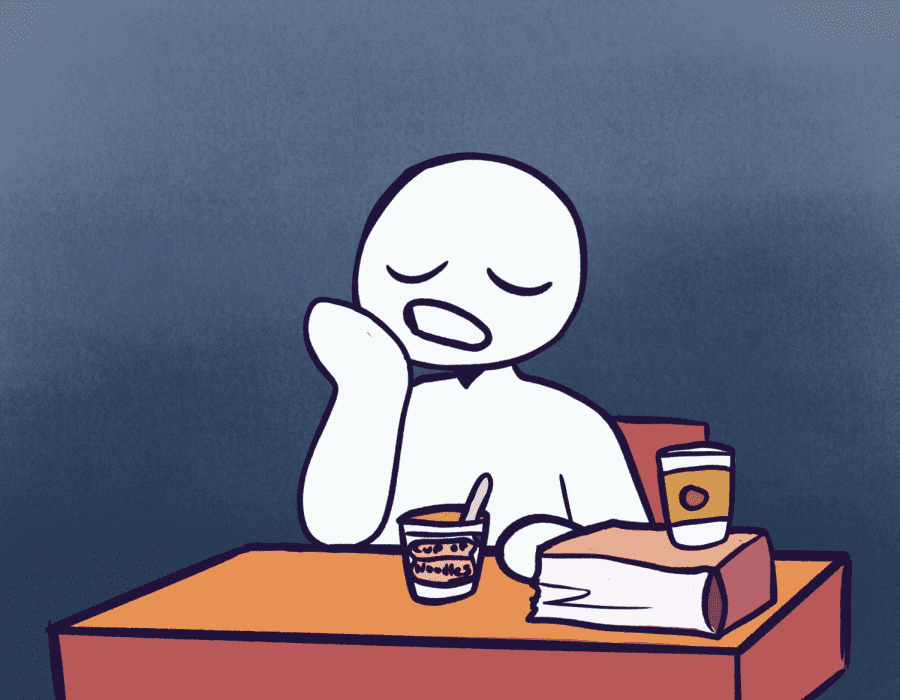Opinion | UI embraces poor student health
October 5, 2022
College students usually come straight from high school. New to adulthood and living on their own for the first time, students often struggle to take care of themselves. Universities are aware of this and, instead of providing solutions, continue to fuel students’ self-destructive behaviors and neglect their needs.
At the University of Illinois, the Grainger Engineering Library recently changed its hours: They are now open 24 hours a day. On top of this, the Espresso Royale Coffee shop inside the Grainger Library is open until 11 p.m. most days. These policies allow students to stay up studying all night. Indeed, it’s not rare to see nearly every depressed-looking student in the second and third-floor cubicles with a cup of coffee well into the night.
However, staying up to study isn’t always beneficial. Sleep-deprived students don’t perform well on tests. Harvard Medical School explains the science behind the relationship between sleep and memory — in short, students need adequate sleep not just to be aware for tests, but every day in order to pay attention and retain information in classes. If the University continues to encourage students to study over resting, they will set us up for disaster.
Aside from sleep deprivation, college students typically have a number of other health issues. A study published on PubMed Central cites poor diets and sedentary lifestyles as two of several problematic behaviors of college students.
This may not come as a surprise: College students sit a lot. Whether studying in the library or sleeping through lectures, they spend many hours a day at desks. This is not an issue limited to the University — many jobs require sitting for eight or more hours a day. However, there is minimal effort to combat this by the University.
Get The Daily Illini in your inbox!
While sports are offered, they are not accessible for everyone. A lot of students are busy and can’t find time to squeeze in games and practice with their heavy course load. University sports are Division 1 in the NCAA, which makes trying out more difficult because teams are very selective. Both gyms on campus, the ARC and CRCE, are often packed with students — and CRCE is quite small. Intramural sports through the University come with a fee that may discourage students from participating.
The University should consider implementing break policies to help students get some movement in. Standing desks are also a great way to give students the option to ditch their sedentary habits. A study showed that having standing desks can increase students’ attention, in turn decreasing their restlessness. Paying attention is how you learn, students who are able to do that well should find it easier to retain information and in turn, do better on tests.
Poor diets can sometimes be correlated with wealth. Healthy foods can be more expensive and the prices for things like fruits and veggies tend to vary — and can be very costly depending on the yield. Also, some students do not have access to a kitchen, whether they live in the dorms or not. The University should provide nutritious and affordable meals for all its students — because packaged ramen isn’t cutting it.
The University needs to make some changes. Student voices are important in helping combat unhealthy practices. If you have an idea that will help other students, speak up — it might just spark the change our University needs.
Maggie is a sophomore in Media.







